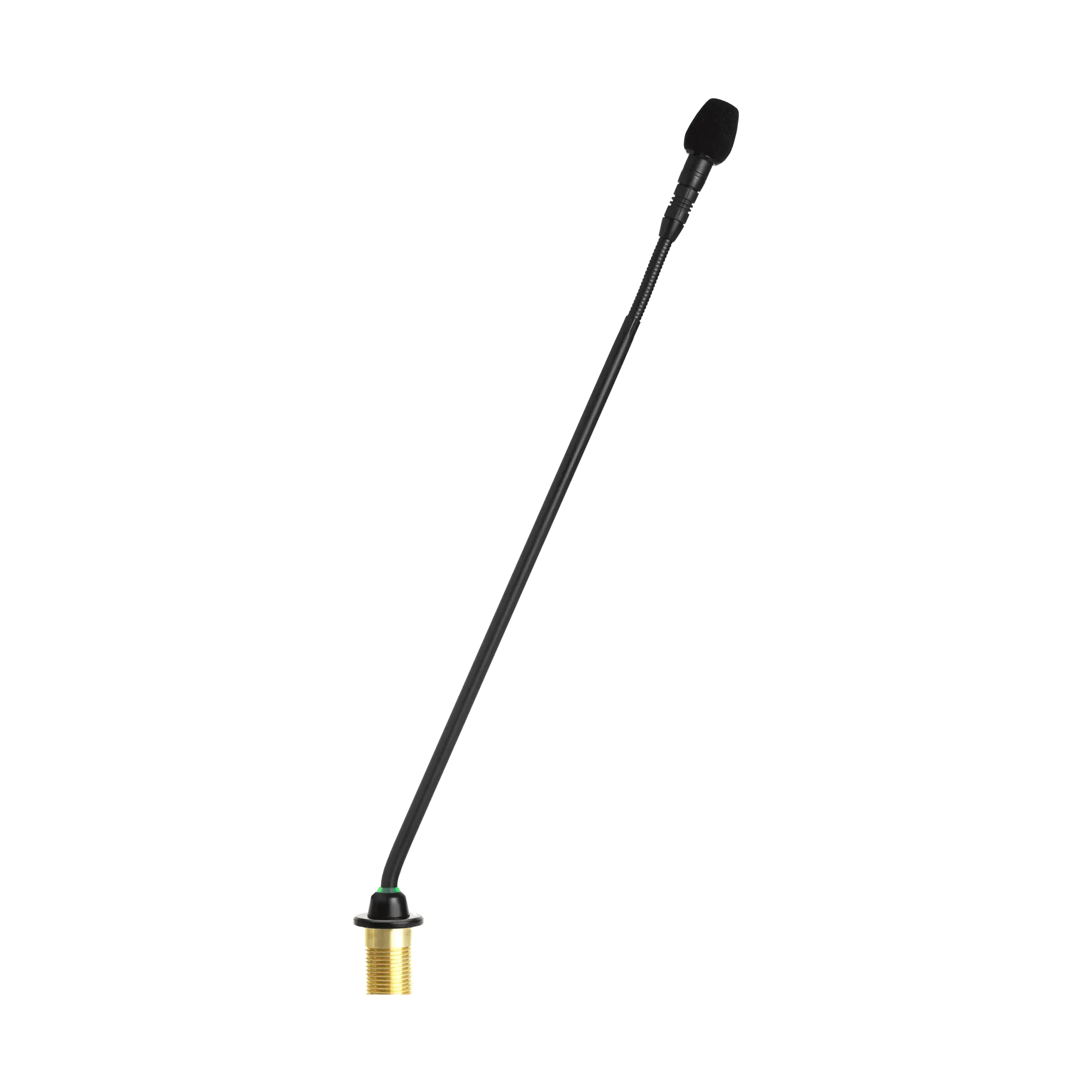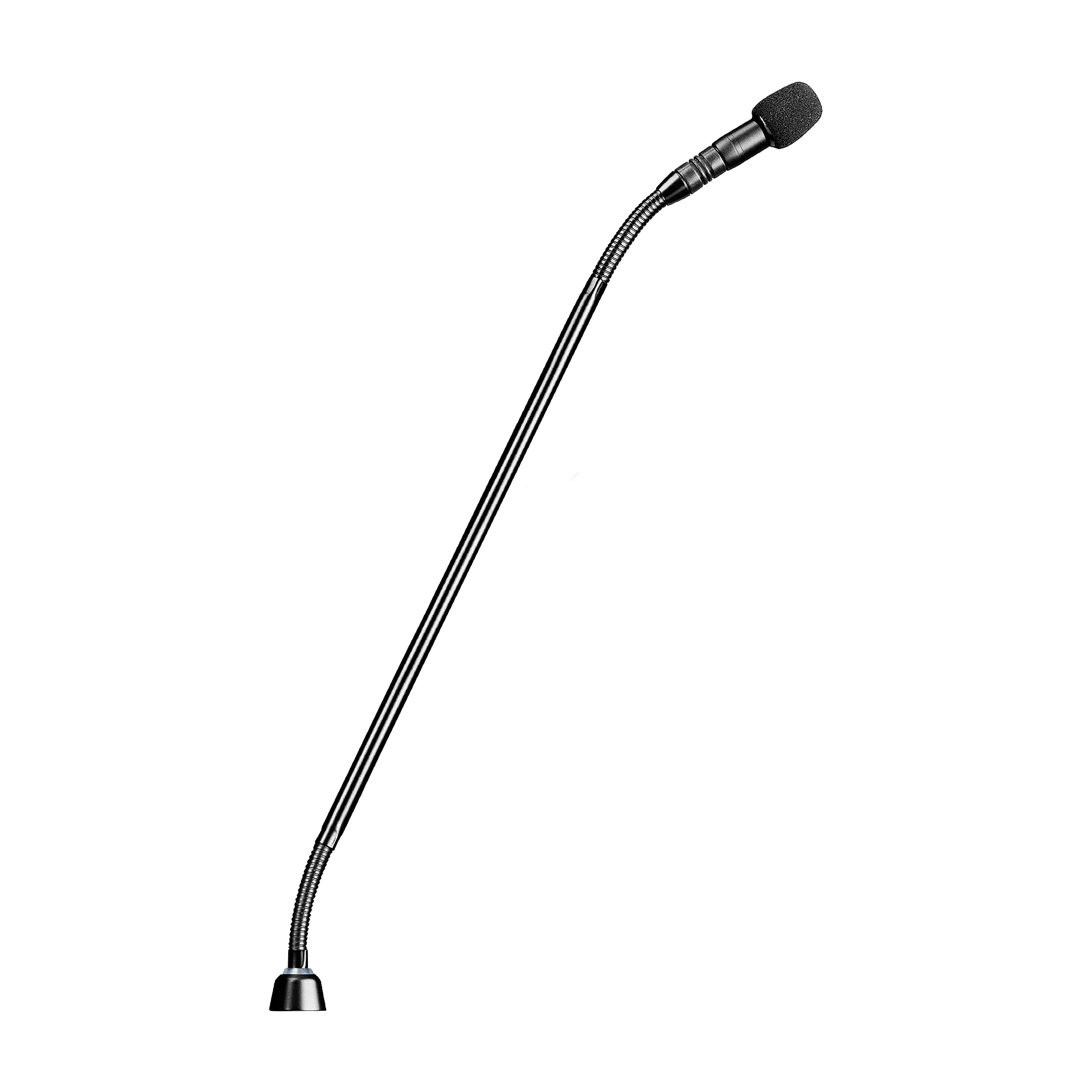MX415DUAL/C Provides Redundant Audio for VIPs

Most presenters -- like an instructor in a college lecture hall or a pastor in a church -- only need one gooseneck microphone. But when the presenter is a VIP – maybe a newsworthy CEO or celebrity commencement speaker – it feels natural to want two microphones on the lectern. Here are the main thoughts behind the two-mics-are-better-than-one strategy.
Advantages of Two Gooseneck Mics

Having a Backup Mic: The obvious reason to have two gooseneck mics on the lectern is to have a backup microphone in case the primary mic fails. Modern microphones are quite reliable, but problems can pop up anywhere in the signal path from microphone to mixer. For a high-profile presenter it can be reassuring to have a second mic wired up and ready to go.
Two Destinations: In many cases, an important event with a live audience is also broadcast, recorded, or streamed. Having two microphones allows you to dedicate one for amplification (with its own EQ, compression, and feedback reduction processing) and one for broadcasting, recording, or streaming (with different EQ and processing). You can adjust the level of one mic to adapt to changes in the talker’s speaking level or the crowd noise without disturbing the level being recorded or broadcast.
The Downside of Two Gooseneck Mics
Having two gooseneck mics mounted on opposite sides of the lectern can impair audio quality, however. If the two mics are spaced apart and the audio from them is mixed together, a phenomenon called phase cancellation occurs that causes a strange “swishing” sound, especially if the talker moves from side to side. The presence of two goosenecks also adds some visual clutter on camera, and can be distracting if they are not aligned perfectly.
The Solution: One Mic, Dual Elements

The MX415DUAL/C dual-element gooseneck microphone provides dual elements and redundant audio outputs for critical, multi-feed live sound and professional broadcast applications. With two outputs, you can have dedicated audio signal paths for primary and backup, or for sound reinforcement and broadcast, recording, or streaming – with just one gooseneck on the lectern.
The two in-line preamplifiers mount discreetly underneath the lectern and operate on phantom power supplied by the audio mixer. Each audio signal path is completely isolated with its own ground to ensure that electrical interference is not transferred between mics.
The MX415DUAL/C comes with everything you need for a successful event:
- Dual cardioid Microflex cartridges
- Two 5-foot (1.5 meter) cables exiting from the bottom of mic, terminating in two TQG 4-pin female connectors
- Two external in-line preamps with 3-pin male XLR connectors
- Included shock mount provides over 20 dB of isolation from surface vibration noise
- CommShield RF filtering minimizes noise pickup from nearby mobile phones and tablets
- Foam windscreen and mesh ball grille included for pop protection
- Full accessory kit included to accommodate temporary or permanent installations

If the situation requires a different polar pattern, the standard cardioid cartridges can be easily removed and replaced with the R183B omnidirectional or the R184B supercardioid cartridge (available separately). You can use one of each in applications that need the tight directionality of a supercardioid to prevent feedback and the broad coverage of an omnidirectional for more room ambience on a recording or broadcast feed.
The MX415DUAL/C dual-element gooseneck microphone provides maximum versatility and streamlined appearance for applications where great sound and great looks go hand in hand.













